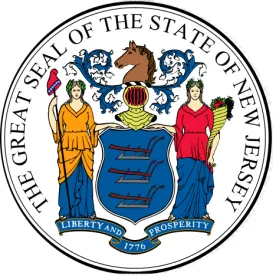For the second time in a little over one month, the Supreme Court of New Jersey has issued an employer-friendly ruling upholding the enforceability of arbitration agreements in the employment context. On July 19, 2020, we wrote about the Supreme Court of New Jersey’s landmark decision in Arafa v. Health Express Corp., which upheld the enforceability of employment arbitration agreements with class action waivers under the New Jersey Arbitration Act (NJAA), even when such agreements are exempted from the coverage of the Federal Arbitration Act (FAA), by virtue of the FAA’s Section 1 “transportation worker exemption.”
On August 18, 2020, in Skuse v. Pfizer, Inc., the Supreme Court of New Jersey again upheld the enforceability of an employment arbitration agreement, this time blessing employer distribution of mandatory arbitration agreements and related materials to employees by electronic means, and confirming that employees may manifest their assent by remaining employed after the effective date specified in the agreements. The Supreme Court of New Jersey reaffirmed that employees have a duty to read the arbitration agreements provided to them and that failure to do so will not relieve them from being bound by the agreements. The decision paves the way for employers to streamline and simplify their processes for obtaining and recording employee assent to mandatory arbitration agreements, and it further underscores why employers without such agreements with their employees may want to carefully consider obtaining them (with class action waivers).
Background
Pfizer hired the plaintiff, Amy Skuse, as a flight attendant in 2012. In 2016, Pfizer sent two emails to its employees, including Skuse, announcing its arbitration agreement and instructing employees to complete a “training module” in which they would learn about the agreement and ultimately be called upon to click a box electronically to “‘acknowledge’” the agreement. The agreement itself (made available to the employees via a link contained in the emails) provided that if Skuse continued employment for 60 days after receiving the agreement, it would become effective and Skuse would be “deemed to have consented to, ratified and accepted th[e] Agreement through [her] . . . continued employment with the Company,” regardless of whether she “acknowledge[ed]” the agreement. Shortly thereafter, Pfizer sent Skuse an email confirming that she had completed the “Mutual Arbitration and Class Waiver Agreement” training module.
In April 2017, Skuse’s employment was terminated. Following her discharge, Skuse filed a lawsuit alleging that Pfizer had violated the New Jersey Law Against Discrimination (NJLAD) by terminating her employment because she refused, on religious grounds, to be vaccinated for yellow fever. The trial court granted Pfizer’s motion to dismiss the complaint and compel arbitration based on the agreement.
Skuse then appealed to the New Jersey Superior Court, Appellate Division, which reversed the trial court’s decision, finding that Skuse had never agreed to be bound by the agreement. Specifically, the Appellate Division “viewed ‘the wording and method of Pfizer’s training module’ to be ‘inadequate to substantiate an employee’s knowing and unmistakable assent to arbitrate and waive his or her rights of access to the courts.’” Pfizer appealed to the Supreme Court of New Jersey.
The Supreme Court of New Jersey’s Decision
In analyzing the matter before it, the Supreme Court of New Jersey concluded that it first needed to determine whether the terms of the agreement, along with Pfizer’s explanatory materials, satisfied New Jersey case law, which requires waivers of rights to be clear and unambiguous. The Supreme Court further observed that, in the employment context, a waiver-of-rights provision must inform employees (albeit not with any “prescribed set of words”) “that they have ‘agree[d] to arbitrate all statutory claims arising out of the employment relationship or its termination.’”
The Supreme Court found that the agreement clearly informed Skuse that by her continuing to be employed for 60 days after receiving the agreement, the agreement would become effective and she would waive her right to pursue employment discrimination claims against Pfizer in court. That is, the agreement explained unambiguously that Skuse’s continued employment after the agreement’s effective date would be deemed to constitute her assent, and it stated in bold font that her “acknowledgment” was not required for the agreement to be enforced. Accordingly, “Pfizer clearly explained to Skuse the rights that she would relinquish if she remained employed after the policy’s effective date and thereby assented to the Agreement’s terms.”
The Supreme Court next considered whether the Appellate Division had correctly concluded that the agreement was unenforceable due to the manner in which Pfizer delivered the agreement and accompanying communications to Skuse. The Appellate Division’s reversal focused on three aspects of these communications:
-
Pfizer’s use of emails to disseminate the agreement and related communications to employees already inundated with workplace emails;
-
its characterization of slides used to summarize the agreement as a “training module” or a training “activity”; and
-
its instruction that Skuse click a box to electronically “acknowledge” the agreement, rather than to explicitly “agree” to its terms.
The Supreme Court was not persuaded by the Appellate Division’s reasoning. First, the Supreme Court explained that even if Skuse were to have contended that she had not reviewed the emails because of the large volume of emails addressed to her (she did not raise such a contention), the large volume of workplace emails would not have invalidated the agreement. The Supreme Court observed the “general rule … [that] ‘one who does not choose to read a contract before signing it cannot later relieve himself of its burdens.’” The Supreme Court noted that any contention by Skuse that she completed the emailed module without reading its contents or the documents linked to it would not have had an impact on the analysis. The Supreme Court further observed that “no principle of New Jersey contract law bars enforcement of a contract because that contract is communicated by e-mail, rather than by the transfer of a hard-copy document.”
Second, while finding Pfizer’s “characterization of its slides summarizing the agreement as ‘training’ was a misnomer,” the Supreme Court ultimately concluded that, due to their “content and tone, Pfizer’s communications could not be misconstrued as a routine component of a training program.” Instead, the Supreme Court found, the emails and attachments “signaled a fundamental change in the manner in which potential [workplace] disputes would be resolved. Pfizer plainly informed employees that they needed to understand and act on the new policy, and that they should seek the advice of counsel if they had legal questions about it.” As such, the Supreme Court held that while the use of such “training” language might have been misleading to an employee in a different setting, Pfizer’s use of the term “training” did not invalidate the agreement in the circumstances presented.
Finally, the Supreme Court rejected the Appellate Division’s conclusion that because the training module had requested Skuse “CLICK HERE to acknowledge” the agreement, rather than click to “agree,” she had not assented to the agreement’s terms. In reaching its conclusion, the Appellate Division relied on the Supreme Court’s prior decision in Leodori v. CIGNA Corp. (requiring “an explicit, affirmative agreement that unmistakably reflects the employee’s assent”) and found that it was “vital that this momentous segment of the [Pfizer] module make ‘unmistakably’ clear that the employee is voluntarily agreeing to the arbitration policy, and not simply acknowledging it.” (Emphasis in the original)
In Leodori, the employer had issued to all employees a handbook that included “the company’s arbitration policy and identified that policy as ‘a term and condition of [the employee’s] continued employment.’” With the handbook, the employer issued an “acknowledgement” form that “included a space for the employee to acknowledge that he or she had received the handbook but included no details on the arbitration policy, and a form entitled ‘Employee Handbook Receipt and Agreement’ … stating that any claims other than worker’s compensation or unemployment compensation claims would be subject to arbitration.” Because the plaintiff in Leodori had signed the “acknowledgment” form but had declined to sign the “Receipt and Agreement” form, the Supreme Court held “he [had] not assent[ed] to arbitration.”
The Skuse court distinguished Leodori, observing that
[n]o form intended to confirm the employee’s assent was left unsigned, as was the case with the plaintiff’s ‘Review and Agreement’ form in Leodori. No writing—paper or digital—was designated by the employer to be the employee’s expression of assent, let alone refused by Skuse. Instead, the prescribed form of assent here was the employee’s decision to remain employed after the effective date of the arbitration policy.
In other words, unlike in Leodori, where the plaintiff’s acknowledgment was intended to serve as the manifestation of his assent to arbitrate, Pfizer’s agreement specified that Skuse’s assent would be manifested by her conduct (i.e., by remaining employed after the agreement’s effective date). Pfizer merely sought Skuse’s acknowledgment that she “underst[ood] that she ‘must agree’ to the Agreement, and that whether or not she clicked the ‘acknowledge’ button, she would be deemed to have ‘consented to, ratified and accepted’ the Agreement through her continued employment at Pfizer.” As such, while the Supreme Court noted that “the word ‘acknowledge’ could be vague or misleading in a different setting, it was an appropriate term” for Pfizer to use under the circumstances. Accordingly, the Supreme Court reversed the Appellate Division, and ordered Skuse to pursue her claims in arbitration.
Key Takeaways
The Supreme Court of New Jersey has provided employers with a road map for efficiently binding New Jersey employees to mandatory arbitration agreements. An employer can email mandatory arbitration agreements to employees, specifying that the employees will be deemed to have agreed if they remain employed after the effective date, and so long as the employer’s communications fairly portray the content and significance of the agreement and the employer can prove the employees actually received them, it appears likely that the agreement will be deemed enforceable to the same extent as if the employees had hand-signed copies of the agreement. Of course, an employer may want to consider carefully not only the content and presentation of the agreement and related communications, but also the manner in which the employer will prove the employees received them. This may include the imposition of a deadline by which the employees must review the agreement and accompanying communications and electronically execute an “acknowledgment” of the type at issue in Skuse.
This approach may be particularly desirable to New Jersey employers in light of the amendments to the NJLAD enacted in 2019, which, among other things, purport to prohibit retaliation against employees who refuse to agree to arbitrate claims alleging discrimination, retaliation, and/or harassment. While it is anticipated the amendment’s anti-arbitration provisions will ultimately be held unenforceable as preempted by the FAA (at least in cases where the FAA applies), that has not happened yet. The Skuse decision affords employers the opportunity to continue to require employees to agree to arbitrate employment-related claims (including claims alleging discrimination, retaliation, and/or harassment) as a condition of their employment, without having to face potentially valid retaliation claims from employees who have been discharged for refusing to agree. Skuse permits employers to put the onus on the employees to leave before the effective date of an agreement if they do not wish to be bound by it.





 />i
/>i

